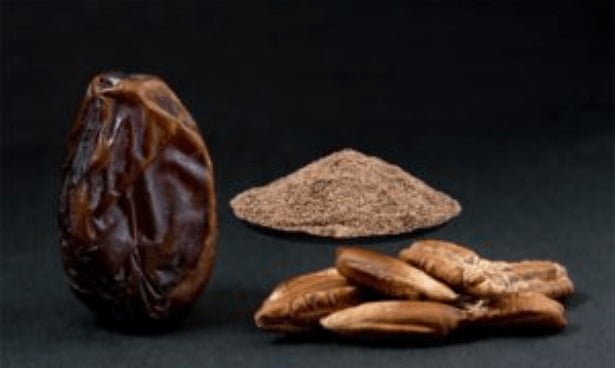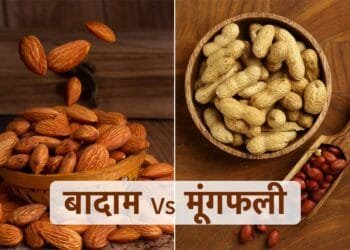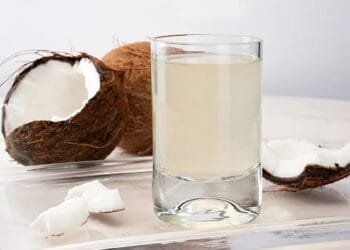Introduction to Date Seed Powder
Date seed powder, derived from the seeds of the date fruit, is emerging as a noteworthy addition to the world of health and nutrition. Originating from the Middle East, date seeds have been utilized for centuries in various traditional practices. Historically, date seeds were often ground and used as an alternative to coffee, or incorporated into animal feed. However, their nutritional potential has only recently been recognized in modern health circles.
The process of creating date seed powder involves several steps. Initially, the seeds are thoroughly cleaned to remove any residual fruit and impurities. They are then dried to reduce moisture content, making them easier to grind. Once dried, the seeds are roasted at a controlled temperature to enhance their flavor and facilitate grinding. The final step involves finely grinding the roasted seeds into a powder consistency, making it easy to incorporate into various recipes and health supplements.
Date seed powder is gaining popularity due to its impressive nutritional profile. Rich in dietary fiber, antioxidants, and essential fatty acids, it provides a multitude of health benefits. Additionally, it contains significant amounts of minerals such as potassium, magnesium, and calcium, which are crucial for maintaining overall health. The presence of polyphenols in date seed powder adds to its antioxidant properties, helping to combat oxidative stress and support the immune system.
The versatility of date seed powder makes it an appealing choice for health-conscious individuals. It can be added to smoothies, baked goods, and even used as a coffee substitute. Its mild, slightly nutty flavor blends seamlessly with various recipes, enhancing both taste and nutritional value. As more people become aware of its benefits, date seed powder is poised to become a staple in health and wellness routines worldwide.
Nutritional Profile of Date Seed Powder
Date seed powder is an often-overlooked nutritional treasure trove, offering a robust profile of essential nutrients. One of its standout features is its high fiber content. Dietary fiber is crucial for maintaining healthy digestion and can aid in preventing conditions such as constipation and diverticulitis. The fiber content in date seed powder not only supports gut health but also contributes to a feeling of fullness, which can be beneficial for weight management.
Antioxidants are another significant component, with date seed powder being particularly rich in polyphenols. These compounds play a vital role in protecting cells from oxidative stress and can reduce the risk of chronic diseases such as heart disease and cancer. The antioxidants in date seed powder help neutralize free radicals, thus contributing to overall health and well-being.
In addition to fiber and antioxidants, date seed powder is a good source of several vitamins and minerals. It contains notable amounts of vitamin E, which is known for its skin health benefits and its role in boosting the immune system. It also provides minerals such as potassium, magnesium, and calcium. Potassium supports cardiovascular health by helping to regulate blood pressure, while magnesium is essential for muscle and nerve function. Calcium is crucial for maintaining strong bones and teeth.
Moreover, date seed powder contains beneficial compounds such as flavonoids, which have been linked to various health benefits including anti-inflammatory and antiviral effects. The macronutrient breakdown of date seed powder reveals moderate protein content along with healthy fats, making it a well-rounded addition to a balanced diet. As for the caloric content, date seed powder is relatively low in calories, making it an excellent ingredient for those looking to add nutritional value without significantly increasing their caloric intake.
Overall, the nutritional profile of date seed powder makes it a valuable addition to any diet, offering a range of health benefits through its diverse array of vitamins, minerals, fiber, and antioxidants.
Antioxidant Properties
Date seed powder has garnered attention for its significant antioxidant properties. Antioxidants play a crucial role in maintaining health by neutralizing free radicals—unstable molecules that can cause oxidative stress, leading to cellular damage. This damage is associated with a range of chronic diseases, including cancer and heart disease. By combating oxidative stress, antioxidants help in protecting cells and tissues from potential harm.
Scientific research has substantiated the antioxidant capabilities of date seed powder. A study published in the Journal of Agricultural and Food Chemistry revealed that date seeds possess high levels of phenolic compounds, which are known for their potent antioxidant activity. These compounds help in scavenging free radicals, thereby reducing oxidative stress and its harmful effects on the body.
Further research in the International Journal of Molecular Sciences indicated that the antioxidant properties of date seed powder could be linked to its rich content of flavonoids and polyphenols. These natural compounds have been shown to exhibit strong antioxidative effects, protecting the body against the onset of chronic illnesses. For instance, the regular consumption of date seed powder may lower the risk of cardiovascular diseases by preventing the oxidation of low-density lipoprotein (LDL) cholesterol, a key factor in the development of atherosclerosis.
Moreover, the potential role of date seed powder in reducing cancer risk cannot be overlooked. Studies have suggested that the antioxidants present in date seeds may inhibit the proliferation of cancer cells and enhance the body’s natural defense mechanisms against tumor growth. This makes date seed powder a promising dietary supplement for enhancing overall health and longevity.
In essence, the antioxidant properties of date seed powder contribute significantly to its reputation as a nutritional powerhouse. Its ability to neutralize free radicals and mitigate oxidative stress underscores its potential in promoting health and preventing chronic diseases.
Digestive Health Benefits
Date seed powder is an excellent source of dietary fiber, a critical component for maintaining digestive health. The high fiber content in date seed powder plays a vital role in promoting regular bowel movements, which helps prevent constipation. By adding bulk to the stool, fiber facilitates its smooth passage through the digestive tract, reducing the likelihood of digestive discomforts.
Moreover, the fiber in date seed powder exhibits prebiotic properties, which means it serves as a food source for beneficial gut bacteria. These prebiotics help stimulate the growth of probiotics, the friendly bacteria essential for a balanced gut microbiome. A healthy gut microbiome is instrumental in improving overall digestive function, enhancing nutrient absorption, and fortifying the body’s immune system.
Several studies have highlighted the positive impact of dietary fiber on digestive health. For instance, research has shown that increased fiber intake can significantly reduce the risk of gastrointestinal disorders like irritable bowel syndrome (IBS) and diverticulitis. Additionally, anecdotal evidence from individuals who regularly incorporate date seed powder into their diets often report improved digestion and fewer instances of bloating and discomfort.
In summary, including date seed powder in your daily diet can offer substantial digestive health benefits. Its rich fiber content not only aids in maintaining regular bowel movements but also supports a thriving gut microbiome through its prebiotic effects. Whether supported by scientific studies or personal testimonials, the digestive health advantages of date seed powder make it a valuable addition to a balanced diet.
Blood Sugar Regulation
Date seed powder has garnered attention for its potential role in blood sugar regulation, making it a viable option for individuals aiming to manage their blood sugar levels effectively. One of the primary attributes of date seed powder is its low glycemic index (GI). Foods with a low GI are known to release glucose gradually into the bloodstream, preventing sudden spikes in blood sugar levels. This gradual release is beneficial for individuals with diabetes or those who are pre-diabetic, as it aids in maintaining stable blood glucose levels.
In addition to its low glycemic index, date seed powder is rich in dietary fiber. Fiber plays a crucial role in blood sugar management by slowing the absorption of sugar in the bloodstream. This not only helps in preventing rapid increases in blood sugar but also promotes a feeling of satiety, potentially aiding in weight management. The high fiber content can contribute significantly to the overall dietary fiber intake, which is often recommended for individuals looking to control their blood sugar levels.
Recent research and clinical trials have shed light on the efficacy of date seed powder in supporting blood sugar regulation. A study published in the Journal of Nutritional Biochemistry highlighted that the consumption of date seed powder resulted in improved glycemic control in participants. The study demonstrated a significant reduction in fasting blood glucose levels and HbA1c levels, a marker for long-term blood sugar control. Another clinical trial conducted on individuals with type 2 diabetes reported similar findings, emphasizing the potential of date seed powder as a natural supplement for blood sugar management.
These findings suggest that incorporating date seed powder into the diet may offer a natural and effective approach to blood sugar regulation. Its low glycemic index and high fiber content, coupled with promising research outcomes, underscore its potential benefits for individuals aiming to maintain stable blood sugar levels and support overall metabolic health.
Cardiovascular Health
Date seed powder, often hailed as a nutritional powerhouse, offers significant benefits for cardiovascular health. One of the key elements contributing to these benefits is its rich nutrient profile. Notably, it contains high levels of potassium and magnesium, both of which play crucial roles in maintaining heart health. Potassium aids in regulating blood pressure by counteracting the effects of sodium, thereby reducing the strain on the cardiovascular system. Similarly, magnesium is vital for maintaining a steady heart rhythm and preventing conditions such as hypertension.
Another compelling aspect of date seed powder is its abundance of antioxidants. These compounds are essential in combating oxidative stress, which can lead to chronic inflammation—a known risk factor for heart disease. By neutralizing free radicals, antioxidants in date seed powder help to reduce inflammation and, subsequently, the risk of cardiovascular ailments.
Moreover, scientific studies have indicated that the consumption of date seed powder can have a positive impact on cholesterol levels. For instance, a study published in the “Journal of Nutritional Biochemistry” found that the antioxidants in date seeds were effective in lowering LDL (bad) cholesterol while increasing HDL (good) cholesterol. This balance is crucial for preventing the buildup of plaque in the arteries, which can lead to atherosclerosis and other cardiovascular diseases.
In summary, the nutrient-dense composition of date seed powder, coupled with its potent antioxidant properties, makes it an excellent addition to a heart-healthy diet. Whether through blood pressure regulation, reduction of inflammation, or improvement in cholesterol levels, the cardiovascular benefits of date seed powder are well-supported by scientific evidence.
Anti-inflammatory and Immune-boosting Properties
Date seed powder is increasingly recognized for its potent anti-inflammatory and immune-boosting properties. This nutrient-rich powder is derived from the seeds of the date fruit and contains a variety of bioactive compounds, including polyphenols, flavonoids, and antioxidants. These compounds are known to play a significant role in reducing inflammation and enhancing the immune system.
Chronic inflammation is a common underlying factor in many diseases, including arthritis, cardiovascular disease, and certain types of cancer. The polyphenols present in date seed powder have been shown to inhibit the production of pro-inflammatory cytokines, thereby reducing inflammation at the molecular level. Additionally, the antioxidant properties of date seed powder help neutralize free radicals, which are known to cause oxidative stress and contribute to inflammation.
Regular consumption of date seed powder can also bolster the immune system. The immune-boosting properties of date seed powder are largely attributed to its high concentration of antioxidants, which help protect immune cells from damage. Furthermore, the presence of essential minerals such as zinc and magnesium in date seed powder supports the proper functioning of immune cells. Studies have demonstrated that individuals who incorporate date seed powder into their diet may experience enhanced immune responses, making them more resilient to infections and diseases.
Scientific research supports these claims. For instance, a study published in the Journal of Medicinal Food found that date seed extract significantly reduced inflammation in animal models. Another study in the Journal of Functional Foods highlighted the immunomodulatory effects of date seed powder, showing improved immune function in human subjects who consumed it regularly.
Overall, the anti-inflammatory and immune-boosting properties of date seed powder make it a valuable addition to a balanced diet. Its natural compounds not only help mitigate inflammation but also enhance immune health, potentially reducing the risk of various inflammatory diseases and boosting overall well-being.
Practical Uses and Incorporation into Diet
Incorporating date seed powder into your daily diet is straightforward and highly beneficial. This versatile ingredient can easily be included in a variety of recipes, enhancing both the nutritional value and flavor of your meals. Here are some practical ways to incorporate date seed powder into your diet:
Smoothies: Adding a tablespoon of date seed powder to your morning smoothie can provide a boost of fiber, antioxidants, and essential minerals. Blend it with your choice of fruits, yogurt, and a liquid base such as almond milk for a nutritious start to your day.
Baked Goods: Date seed powder can be used as a partial substitute for flour in baked goods. Replace up to 20% of the flour in recipes for bread, muffins, cookies, and cakes with date seed powder. This not only enhances the nutritional profile of your baked products but also adds a unique, nutty flavor.
Teas and Coffees: Date seed powder can be brewed into a caffeine-free coffee substitute. Simply steep a teaspoon of the powder in hot water for 5-10 minutes. Alternatively, add a teaspoon to your regular coffee grounds for a nutrient boost without altering the taste significantly.
Yogurts and Porridges: Stirring a teaspoon of date seed powder into yogurt or oatmeal can enhance the texture and nutritional content of these breakfast staples. It blends well without overpowering the flavors.
When it comes to dosage, it is generally recommended to start with 1-2 teaspoons per day and gradually increase to 1-2 tablespoons as your body adjusts. However, individuals with allergies to dates or those with pre-existing health conditions should consult a healthcare provider before incorporating date seed powder into their diet. Additionally, excessive consumption may lead to digestive discomfort due to its high fiber content.
By integrating date seed powder into your daily diet thoughtfully and cautiously, you can enjoy its numerous health benefits while enhancing your meals and beverages.

























